Who Continues to Support Ukraine in Kazakhstan?
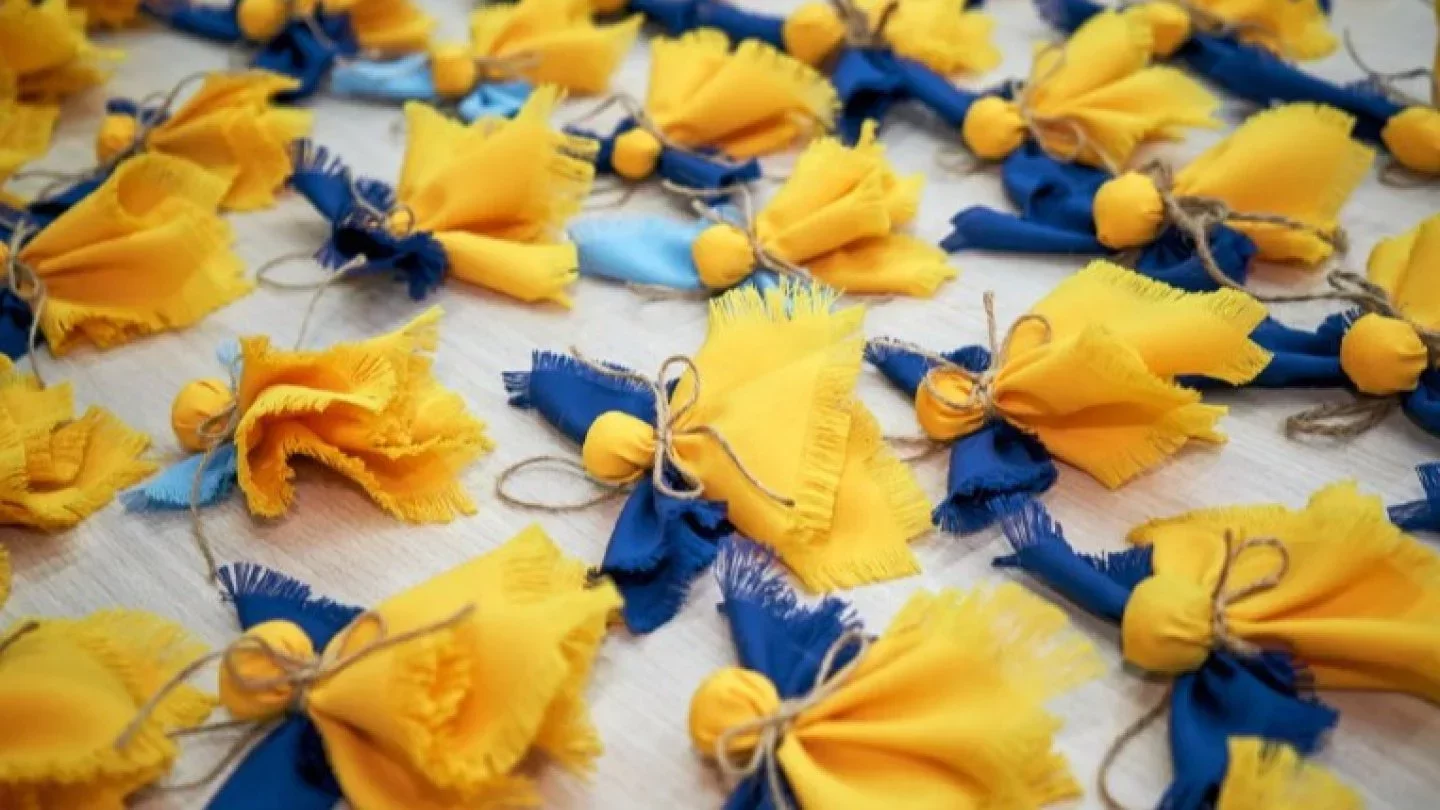 Photo: Angels of Freedom
Photo: Angels of Freedom
February 24, 2024, marked two years since the beginning of Russia's full-scale invasion of Ukraine. This war has forever changed and claimed hundreds of thousands of lives. It has also left its mark on Kazakhstan. Orda.kz has dedicated this article to Kazakhstanis for whom helping civilians in Ukraine has become a matter of honor.
Humanitarian Neutrality
Kazakhstanis began to help Ukraine immediately after the outbreak of hostilities in February 2022. More than 20 million tenge was raised in Kazakhstan for medicines and other humanitarian aid in a matter of days.
Meanwhile, the government of Kazakhstan announced that it sent 82 tons of medicines to Ukraine, i.e. 25 types of medicines worth $2.2 million.
Among those who provided humanitarian aid to Ukraine immediately after the onset of Russia’s invasion were well-known figures: deputy Yermurat Bapi, journalist Karlygash Nedelova, businessmen Margulan Seisembayev and Mukhtar Dzhakishyev, writer Yuri Serebryansky, and many others.
However, it seems that there is less news about this at the moment. Only a few initiatives have been widely publicized. Entrepreneurs from Kazakhstan have sent humanitarian aid and generators to Ukrainian hospitals. In the summer of 2023, a Kazakh company helped repair a medical facility damaged by Russian shelling in the Ukrainian city of Mykolaiv.
The "yurt of indestructibility" in war-affected Ukrainian cities was greatly applauded. It was set up thanks to the Kazakh diaspora in Ukraine. More than 100 thousand people have visited a yurt of indestructibility in Kyiv alone.
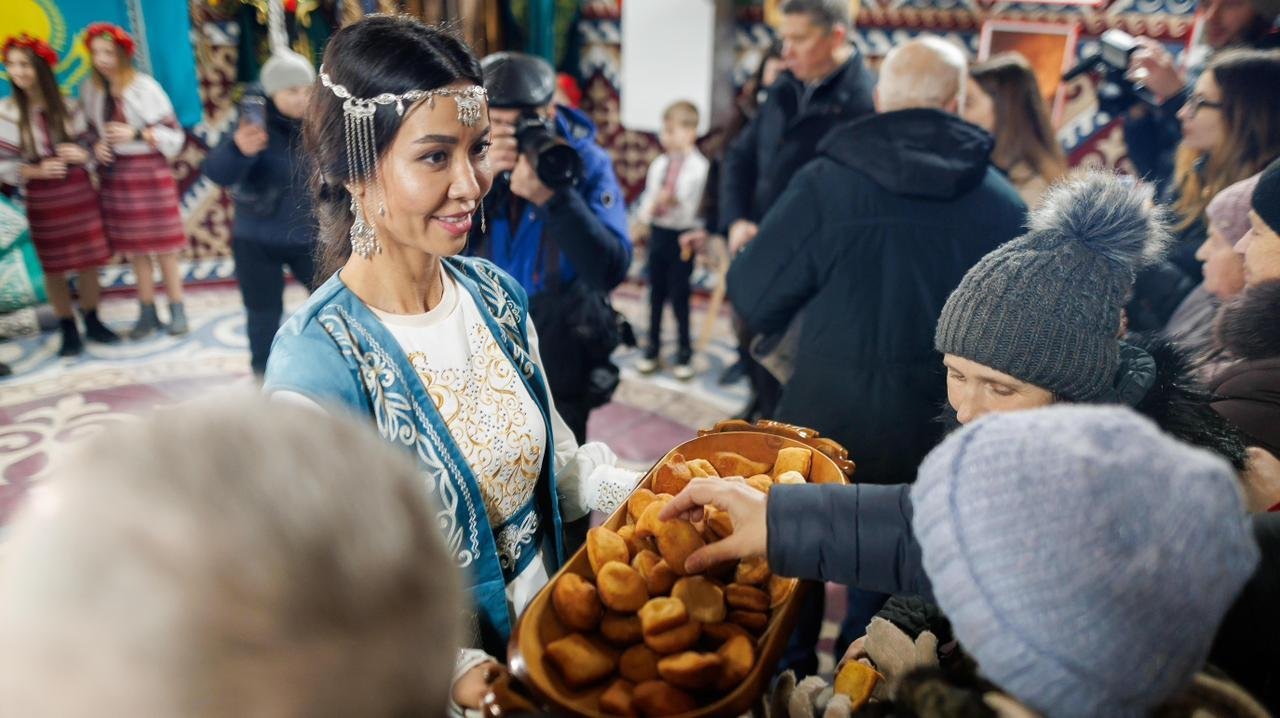
Indeed, there have been noticeably fewer reports on Kazakhstani businesses supporting Ukraine in the last two years. On the other hand, news about how companies registered in Kazakhstan helping Russia circumvent sanctions and obtain equipment for their defense industry has been on the rise.
Public figures are also less likely to speak out in support of Ukraine. At the state level, Kazakhstan has adopted the position of "humanitarian neutrality". Almost all relief sent from Kazakhstan to Ukraine today is collected by volunteers.
"Empathy Has Dropped”
For most Kazakhstanis, Russia’s invasion of Ukraine has become everyday news. The first wave of humanitarian aid has thinned out.
The Posylka Foundation, founded in Almaty by caring citizens of three countries: Kazakhstan, Ukraine, and Russia, is now shutting down. In 2022, it was created by volunteers who worked at the humanitarian aid collection headquarters. When the headquarters was closed, they decided to support Ukraine on their own.

The Foundation sent food, hygiene products, and warm clothes to Ukraine. But in two years, the assistance that passed through the fund has decreased so much that the volunteers have decided to curtail its activities. Volunteers will continue to support Ukrainian refugees in Kazakhstan, but no longer as a legal entity. The last humanitarian aid vehicle sent by the Posylka Foundation left for Ukraine in November 2023.
In 2023, the amount of relief collected decreased to 30% compared to 2022, and by the end of the year, the volume decreased to almost zero. This was the reason why we decided to shut down the fund and focus only on supporting refugees in Kazakhstan. It will be better if we continue to work as individuals to focus our energy on concrete support. There was not a single professional among us, everything was based on idealism and a desire to help the people of Ukraine to survive. No one wanted to get paid for this, all our activity was done in our free time from our main job, and we could not seriously and consistently search for sponsors. When the usual flow of relief dropped, we had no choice. Posylka volunteers told Orda.
The Angels of Freedom charity Foundation helps fit out bomb shelters in Ukrainian schools and nurseries. Its co-founder, Yevhen Ribalko, also admits that "There has been slightly less empathy after 2 years of war." Yet, this does not translate as the civilians of Ukraine no longer needing support.
Yes, there is less tragic news coming now. But air alarms sound every day in Ukraine, and children in schools and nurseries go down into basements. And this is not right. This is, in fact, a whole traumatized generation, Yevgeny Ribalko speaks.
Kazakh Angels
Angels of Freedom has been helping Ukrainians for a year and a half now. The foundation began operating in the summer of 2022 initially as a volunteer project. In January 2023, it became a legal entity. Its founders, Irina Semenchuk and Yevgeny Ribalko, participated in collecting humanitarian aid from the very beginning of the war. They later decided to launch their own project.
The Angels of Freedom Foundation helps nurseries and schools. Kazakhstani volunteers are raising funds to fit out shelters in educational institutions. During the two years of the war in Ukraine, there were 1,196 air alerts in the Chernihiv region alone. Schoolchildren and nursery students spent 1,350 hours in shelters during this time.
According to Irina Semenchuk, every alarm is taxing. Thousands of children are forced to go down to basements every day, where they spend from half an hour to five hours. In Chernihiv, where Kazakhstanis are helping to re-equip school bomb shelters, 27 out of 34 schools have been affected by shelling.
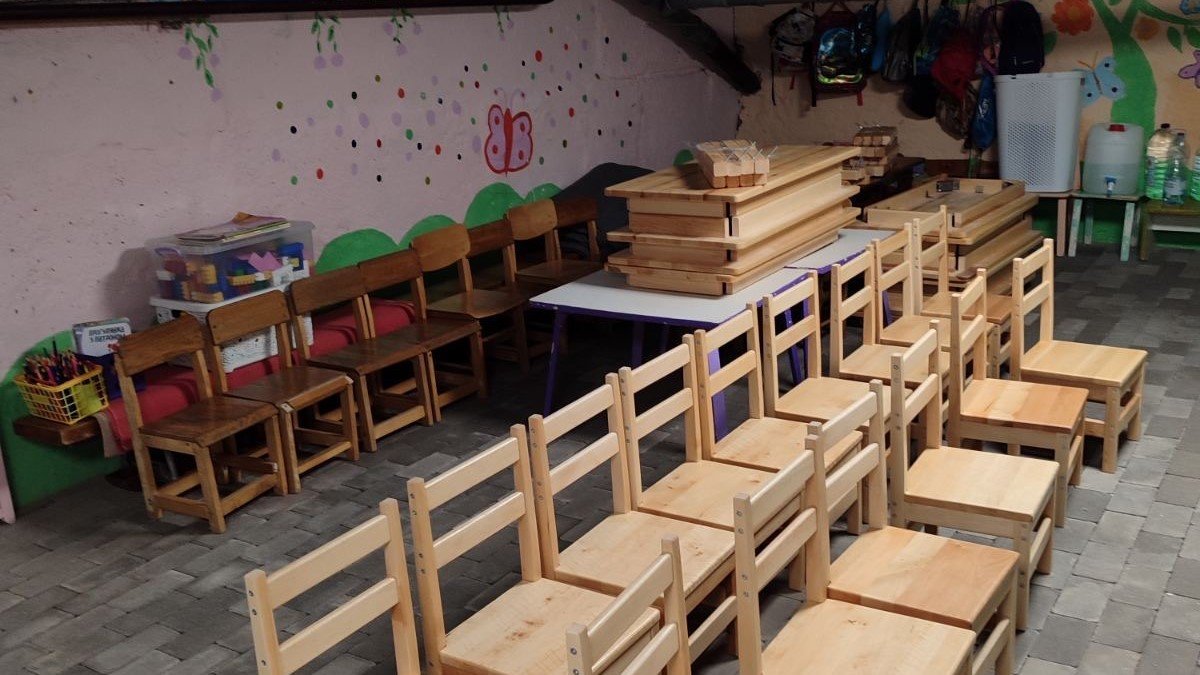
Before assisting a particular school or nursery in Ukraine, Kazakhstani volunteers go there. Fundraising is announced only after careful calculations. This way, volunteers know that the money will be spent as intended.
We are helping to convert old Soviet basements in schools and nurseries, repair them, make them comfortable for children. We have already helped three schools and four nurseries. There was a different amount of assistance for all facilities. In some places, we made repairs, set up ventilation, laid tiles, and painted the walls. In other places, it was only necessary to buy furniture that was needed. The total amount for these one-and-a-half years amounted to 25 million tenge, Irina Semenchuk said
Ribalko admits that 25 million tenge is not much. Any help to Ukraine is valuable and important to the foundation's volunteers nonetheless.
We want to remind people of humanitarian values because over these two years, the rhetoric of propaganda justifying the war has not subsided. And we often see that people who have adhered to some vague position begin to say that all this is justified, notes Yevgeny Ribalko.
The Angels of Freedom Foundation has found a unique way to collect humanitarian aid. It holds fairs — "toloka", where everyone can make a donation and receive a traditional Ukrainian angel doll. You can also purchase such a doll through the organization's website. The volunteers are proud that the angels have become a symbol of support for Ukraine for more than five thousand residents of Kazakhstan who have helped the foundation.
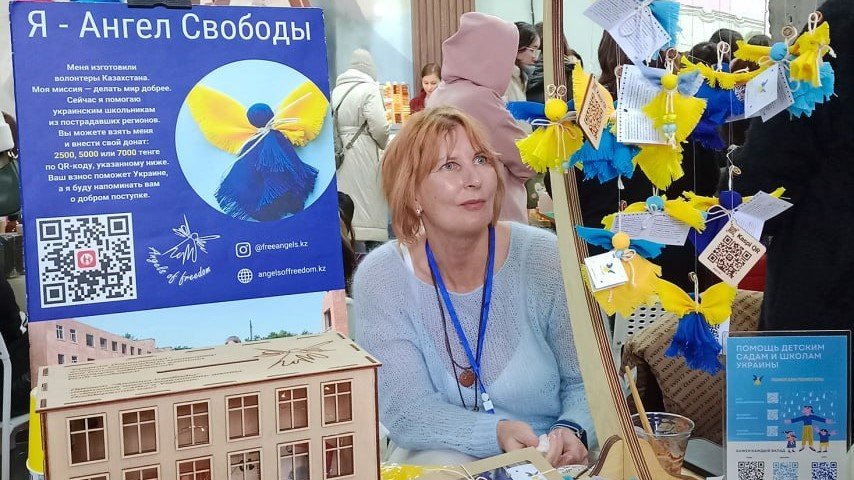
A Creative Minority
All the relief from Kazakhstan that is now ready to be provided to Ukraine lies on the shoulders of volunteers. The Angels of Freedom Foundation has about 300 permanent volunteers, whereas the "Posylka" brought together up to 500 people. Among those who help Ukraine, there are both students and pensioners, but people aged 35-40 years are the majority.
Students join the project periodically, but those who stay for a long time and constantly systematically provide assistance are people over 35. Students often provide some kind of situational assistance - two or three months, and they burn out, says Irina Semenchuk.
According to Tatiana, a Posylka Foundation volunteer, for Kazakhstanis who decide to help Ukraine, such a decision is not a momentary impulse, but a matter of conscience.
They are educated, progressive people, thinking with a healthy dose of critical thinking. I would call them the "creative minority" that moves the world forward and makes it better and kinder, says Tatiana.
Not only Kazakhstanis are ready to help Ukraine: humanitarian aid in Almaty, Astana, Karaganda, and other cities is collected by Ukrainians and Russians who moved to Kazakhstan because of the war. Volunteers do not categorize people by passport, especially considering that for those from the Russian Federation, financial support for Ukraine can be fraught with legal repercussions at home.
Russians who came to Kazakhstan after mobilization often help. Many of them have some family still in Russia, and others in Ukraine. They cannot get to Ukraine with Russian passports, and they cannot live in Russia, Irina Semenchuk said.
Those Nearby
Over the past two years, many volunteers have supported Ukrainian refugees in Kazakhstan. There is a 90-year-old woman from Mariupol among those receiving consistent support from “Posylka” volunteers. After being evacuated from the war zone, she ended up in a home for the elderly. Volunteers helped to find housing for her in a more accommodating social institution. They also pay all lodging expenses for her and visit regularly. Every month it becomes more and more difficult to gather funds to support the elderly woman.
We support other families as well. These are mostly women with children who find it difficult to get by in Kazakhstan. Everyone's story starts the same way: mostly those who have relatives or acquaintances here, who promised to help them, come here. Support ends quickly, and people find themselves in a difficult situation since there is no material assistance for Ukrainians in Kazakhstan and it is difficult to obtain a legal status, explains Tatiana, a volunteer at the Posylka.
According to volunteers, a woman living with her family in Ridder had to sell her mobile phone to pay rent. Some Ukrainians who fled to Kazakhstan did not even have warm clothes. Caring Kazakhstanis bought them. Ukrainian children also need help, as it is difficult to adapt to the new environment. Since the autumn of 2022, two volunteers have been paying for Kazakh language courses for refugee children from Ukraine. This way they do not fall behind in Kazakh schools.
Has Relief Come?
Kazakhstani volunteers have established a feedback system. They work closely with Ukrainian volunteers who distribute relief to regions. Kazakhstanis helping Ukraine say the most important thing for them is Ukrainians’ kind words.
Our friends helped to design and print stickers to label humanitarian aid from Kazakhstan and send us feedback. And it was the right decision because every response from Ukraine gave strength not to give up, the Posylka foundation said.
On each package, volunteers placed an inscription in Ukrainian: "будь ласка, дайте знати, що допомога дiйшла.” (Please let us know that the relief has arrived - Ed.)
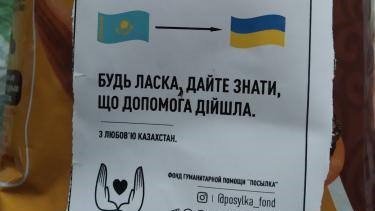
Many Ukrainians sent photos of the chocolate "Kazakhstan" with words of gratitude. Some responses were in Kazakh. Residents of the Kyiv region, Kharkiv, Mykolaiv, Odesa, Chernihiv, and many other cities thanked Kazakhstanis. Some sent gifts to the volunteers despite being in a war-torn country.
People haven't often written but called to talk and personally thank you. They do not complain, no: they speak with hope, even though some people’s apartment burned down, or a (missile - Ed.) flew into their house, and the person miraculously survived, but with a concussion. It makes your heartache, and you think: such wonderful people, why do they have these sorrows and losses? They are grateful. They are touched by the fact that this small pack of buckwheat, stewed meat, or chocolate is from people from the steppes of Kazakhstan and that they were not left alone in times of trouble, says Tatiana, a volunteer at Posylka.
Each volunteer has their personal story of helping Ukraine. Some have attached sedimental value to gifts from Ukrainian families, while others remember helping refugees with Kazakhstan’s migration legislation. Volunteers say that it is enough to see the Ukrainians they help smiling in photos.
From the very first days, I was amazed that Ukrainians were being helped by Kazakhstanis who have neither relatives nor friends in Ukraine. They just understand that there is injustice, there are children who suffer, and they need to be helped, Irina Semenchuk said.
The war in Ukraine continues, and the topic has become routine news. Volunteers do not waver in their efforts. But will they have enough resources to remain "Kazakh angels" for Ukrainians if the war drags on for several more years?
Original Author: Nikita Drobny
DISCLAIMER: This is a translated piece. The text has been modified, the content is the same. Please refer to the original piece in Russian for accuracy.
Latest news
- Timur Kulibayev vs. New Kazakhstan: Oligarch Defends His Assets
- MP supported Imam's Statements About Kazakh Traditions
- Altyn Adam: How Filmmakers Quarreled Over Cartoon About Scythian Warrior
- "No Chance": Russian Deserters' Stories in Kazakhstan
- National Fund Earns As Much As It Spends
- What is Going on with FPL Head's Recent Appointment?
- Stati Case: Victory for Kazakhstan?
- Qataris to Spend $3.5 Billion on Construction of Plants in Kashagan
- Oil Quotas: a Blessing or a Curse for Kazakhstan?
- Plant in Kazakhstan: Swiss Investor Purchased, Legal Battle Follows
- Situation with Russian Securities in Kazakhstan Explained
- Uranium Mining Tax in Kazakhstan to Change Starting in 2025
- Chinese Oil Giant to Build Wind Farm in Kazakhstan
- Expert Explains Toqayev Greeting Xi Jinping in Particular Way
- Scandal around "Aria-Zhana Astana", Controlled by Satybaldy, Not Subsiding
- SCO Summit in Astana: What to Expect?
- Who Was Oppositionist Aidos Sadykov?
- KNB Agent Orik VS Financial Police Agent Sanych
- Nazarbayev's Relatives on Trial: Systemic Purge or Political Games?
- Fire in Greece: Luxury Yacht, Kazakhstani Oligarchs' Vacation Scandal

